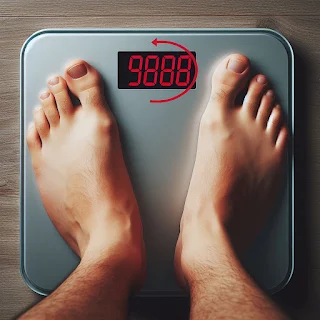Obesity is a serious health problem that affects millions of people worldwide. It can lead to various diseases, such as diabetes, heart disease, stroke, and some cancers. It can also affect one’s quality of life, self-esteem, and mental health. But what happens when obesity reaches extreme levels, where one’s weight exceeds the normal range by several times? In this article, we will explore some of the challenges and hardships that individuals with extreme obesity face in their daily lives.
A Family Out of Work
One of the cases that illustrate the difficulties of extreme obesity is the Chawner family from Lancashire, UK. The family of four, consisting of parents Audrey and Philip, and daughters Emma and Samantha, weigh a combined total of 83 stone (about 527 kg). None of them have had a job for over 11 years, and they rely on state benefits to survive. They claim that they are too fat to work, and that they have been discriminated against by employers because of their size. They also say that they have tried to lose weight, but failed due to genetic and medical reasons.
The Chawner family has faced a lot of criticism and backlash from the public, who accuse them of being lazy, greedy, and a burden to society. They have also been subjected to abuse and harassment from strangers, who mock them for their appearance and lifestyle. The family has defended themselves, saying that they are happy with who they are, and that they are not ashamed of their weight. They have also appeared on several TV shows, such as X Factor and Lorraine, to share their story and raise awareness about obesity.
A Woman Accused of Murder
Another case that shows the extreme consequences of obesity is that of Mayra Rosales from Texas, USA. Rosales, who weighed 1,036 pounds (about 470 kg) at her heaviest, was accused of killing her two-year-old nephew, Eliseo, by rolling over him and crushing him in 2008. Rosales initially confessed to the crime, saying that she was responsible for the boy’s death. However, she later recanted her confession, and revealed that she was covering up for her sister, Jaime, who had actually beaten the boy to death with a hairbrush.
Rosales’ case attracted a lot of media attention, and she was dubbed as the “Half-Ton Killer” by the press. She faced a possible death penalty, but the charges against her were dropped after the autopsy report confirmed that the boy had died from multiple injuries, not from being crushed. Rosales then testified against her sister, who was sentenced to 15 years in prison for the murder. Rosales also underwent a series of surgeries to remove excess skin and fat, and managed to lose over 800 pounds (about 363 kg) in the process. She now lives a healthier and happier life, and hopes to inspire others to overcome obesity.
A Man Spared from Jail
A third case that demonstrates the impact of obesity on the justice system is that of Claude Jackson from Virginia, USA. Jackson, who weighed 550 pounds (about 249 kg) at the time, was arrested in 2019 for stealing and selling a cellphone. He faced a possible jail sentence of up to five years, but the judge decided to spare him from incarceration, and instead ordered him to do 180 hours of community service. The judge reasoned that sending Jackson to jail would pose a serious risk to his health, as he suffered from diabetes, high blood pressure, and sleep apnea. The judge also said that the jail was not equipped to handle inmates of Jackson’s size, and that it would cost too much to transport and accommodate him.
Jackson’s case raised some questions and debates about the fairness and effectiveness of the justice system, and whether obesity should be considered as a mitigating factor in sentencing. Some argued that Jackson was given a lenient treatment, and that he should have faced the same consequences as any other offender. Others argued that Jackson was given a compassionate and sensible solution, and that he should be given a chance to improve his health and behavior.
Conclusion
Extreme obesity is a complex and challenging condition that affects not only one’s physical health, but also one’s social, emotional, and legal well-being. It can lead to isolation, discrimination, stigma, and even violence. It can also limit one’s opportunities, choices, and freedoms. However, it is not a hopeless situation, and there are ways to overcome it. With the help of medical professionals, family, friends, and support groups, individuals with extreme obesity can achieve weight loss, health improvement, and personal transformation. They can also raise awareness and educate others about the realities and struggles of living with extreme obesity.






No comments:
Post a Comment